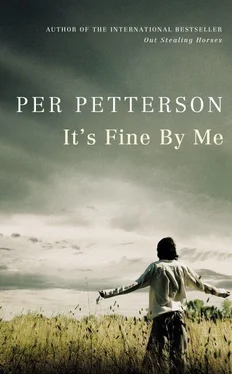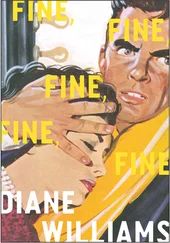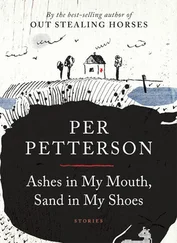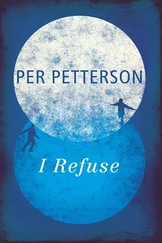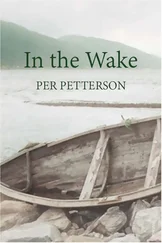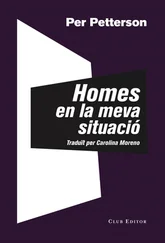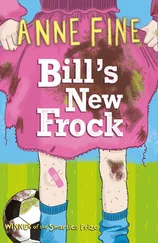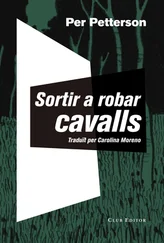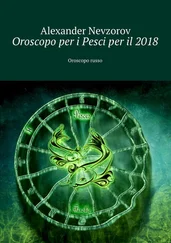I brush the soot off my overalls. My forearms feel as dry as old cardboard, I am so tired, I am sweating and freezing, and I sit down on the lowest step of the stairs and roll a cigarette. To thread a new web alone is impossible.
Maggi walks past in a light blue coat with a notepad in her hand. She is forty-five years old, newly divorced and always cheerful.
‘Goodness me, are you here on your own?’ she says.
I do not answer, and she asks:
‘Anything you need from the shop?’ and stands with her pencil at the ready. Her job is to run errands, fill the coffee machine and make everybody happy.
‘Petterøe 3 and rolling paper. Rizla.’ She writes it down as she is leaving and waves over her shoulder and is gone. With numb fingers, I roll the shreds of tobacco I have left. The cigarette looks more like a trumpet, but I light up, and my hands are shaking, and then the foreman enters the room. His coat is spotless white, and he stops in front of me, looking at his watch as though it were some kind of new invention.
‘Tell me something, Sletten, haven’t you been here long enough to know the break starts at eleven and not at ten?’
I get to my feet, drop the cigarette and stub it out with my shoe.
‘And I don’t know if you’ve noticed, but there are some very serviceable ashtrays placed here and there on this floor.’ He turns on his heel and brushes invisible dust off his coat. There is a bald patch at the back of his head, and his hand automatically shoots up to cover it, and then he is off through the doors at the far end of the hall. The doors slam shut, and the sound slams through my head, and there’s a humming in there, for this is my father leaving, the way I saw him the last time he was home five years ago. It was Sunday morning, and we hadn’t seen him for two weeks, and suddenly the door opens, and in he comes wearing the same clothes he wore when he left.
‘Hello,’ I say. I feel timid, but he doesn’t answer anyway, just walks right past me to the stairs, his eyes fixed straight ahead, and then there is the smell of him, the smell of his jacket, his body, the smell of bonfire and forest and long-forgotten sunny Sundays, only so strong and unfamiliar in here. He hasn’t shaved since he was last at home, maybe hasn’t washed, either, and there are grey streaks in his beard I didn’t know were there. I turn, and my mother is standing in the living room doorway, she doesn’t speak, just gazes up the stairs, and I gaze up the stairs. We can hear him in the bedroom, he is taking his rucksack from the cupboard, pulls out the drawer of the bedside table, and we know what he’s got there, the police never found it, and there is a clunk as he drops it into the rucksack. My mother mumbles something I can’t make out, and upstairs he stuffs more things into the rucksack, and then he comes back down. I hold my breath, I do not breathe, my mother does not breathe, and he is outside, slamming the door behind him, and it slams through my head, and he didn’t even look at me.
I run into the living room and across to the window and watch him walk down the gravel path to the gate. By the road, he stops and turns, puts his hand in the rucksack, pulls out the pistol and takes a shot at the house. There is the sound of thunder and lightning, and the bullet smashes through the kitchen window and hits the cupboard above the sink and bores a hole in the wall behind it, which is nothing but plasterboard, and maybe it goes right through to the living room. We stop at the kitchen threshold and dare not go any further. We can see the hole in the pane and we turn and look at the cupboard. There were three jars of strawberry jam on the middle shelf inside, and soon it is dripping red into the sink. Dripping and dripping, and then it starts to flow, but neither of us can make the effort to go in and open the cupboard door to see what’s behind.
‘My God, what shall I do?’ my mother whispers. I close my eyes and see my father’s hand raising the gun, there is a flash of light, for it is sunny outside, and I run back to the living room, the hall smelling of bonfire and forest and long-forgotten sunny Sundays, but when I look out the window, there is no one by the gate.
The next day my mother starts packing.
I look around for Samuel and catch sight of him half hidden behind the press where he is padding about with a broom, sweeping the ashes off the floor. As soon as the foreman’s through the door and gone, he drops the broom and goes into the soundproof room.
Trond comes whistling in where the foreman went out, he has a copy of Melody Maker tucked under his arm. He looks at me and grins.
‘Tell me something, Sletten,’ he says in a bossy voice. ‘Are you sure the printing trade is right for you? Have you considered the Oslo Fire Brigade? Hell, can’t I go to the shithouse for two minutes without you razing the whole place?’ I don’t answer. In a couple of months I might; for now, I just shrug.
‘Samuel!’ Trond shouts. ‘Come on, we have to thread the paper.’ To me he says, ‘The printers are in the storeroom playing poker, so we’ll have to do without them.’
We start the machine on slow, make a new cut in the paper and start threading it through the press, one man each side, round hundreds of cylinders and rollers. It takes ages, but everything runs smoothly, we could have done it with our eyes closed. When we’ve finished, we wash down the rubber blankets and have a smoke. We’re not allowed to start up without the printers, so we just have to wait for Goliath and Elk to show up. But they don’t, and Trond checks his watch.
‘Lunchtime,’ he says.
To get to the cloakroom, we have to go through the next concourse. I open the large door and walk straight into a wall of sound. The roar bounces off the walls and the compressed air valves make smacking sounds as the pressure is released, there is a loud whistle, the machines are coming in to land, everything moves, there is someone running, and the machines stop and go silent. A man I cannot see lets out a naked laugh, another man throws his lunch pack like a baseball, it fizzes in an arc through the air, and I can’t resist, I jump and catch it in mid-flight and toss it into the nearest waste bin.
I hear ‘Fuck you,’ and there is a tingle in my spine, but I just put my hands up and move on without looking back.
In the canteen we help ourselves to coffee from the counter, find a table by the wall, and Trond pulls a pack of cards from his pocket and starts to shuffle. We are the first ones here, it’s perfectly still, and we hear the clatter from the kitchen and the canteen lady humming. Trond deals with practised fingers, five cards each, and the door opens and all the others come streaming in wearing blue, ink-stained work clothes, and their hands are flushed from the white spirit and strong soap. They are shouting and laughing about something that has happened, but we don’t know what that is, and we don’t care. But when everyone has sat down, Jonny comes bursting in, five hours late today with his hair standing on end, and his face as red as his hands. He isn’t close enough for me to smell him, but I know he reeks of alcohol. He pours himself a large mug of coffee and chuckles at something only he knows about. On his way from the counter, he stops at the window facing the car park and looks out.
‘I’ll be damned,’ he says. ‘Did I come in the car today?’
Everyone cracks up laughing, they slap their thighs and roar with laughter, but I can see from Jonny’s face that he is not joking, he is staring in disbelief at the yellow Opel Kadett parked crosswise out there. His eyes are rimmed with white as he runs the gauntlet through the canteen and sits down at a table by himself. He lowers his head, and I pick up my cards, but I don’t look at them, I look at Jonny and think back to the first time I saw him, charging from the gallery of Number Three with a test print in his hand. Everything was wrong, no one was doing their job, and he was so furious the blue veins on his forehead stood out, and on his back there were big patches of sweat, and he scurried in between the machinery and started to dance along the ink regulators, twisting them like a lunatic, and then he was out again and off to the paper-folder for another test. Kneeling down, with a magnifying glass in his hand, pirouetting up, waving the print in the air he smacked it down on the table and said:
Читать дальше
